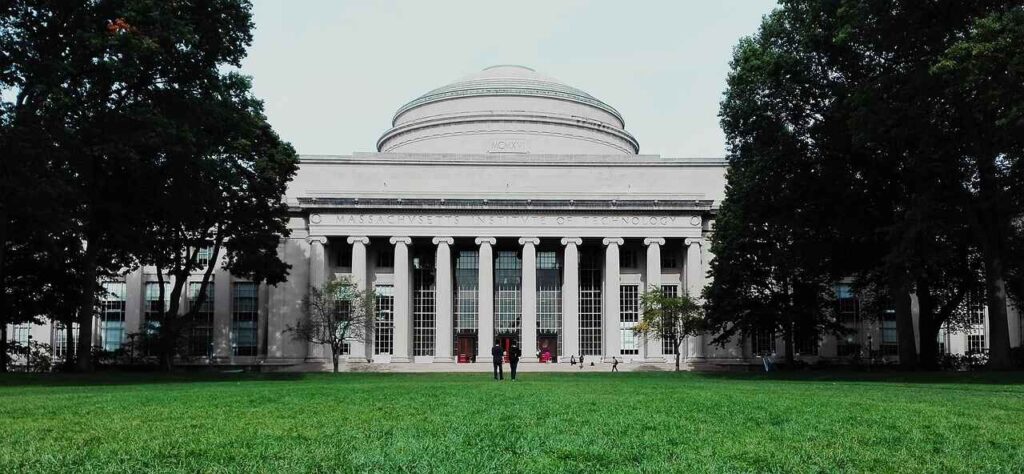As a seasoned IB writer, I’ve seen my fair share of students grappling with the question: Does MIT accept IB students? In my extensive experience with the International Baccalaureate program and university admissions, I’ve gathered insights from the IB curriculum that might be the guiding light for aspiring MIT students.
Let’s break down the IB requirements and scores needed for the Massachusetts Institute of Technology, and yes, we’ll tackle the ever-persistent queries about the minimum and average IB scores, too.
Overview of MIT’s Admission Policy for IB Students
First things first, let’s set the stage. As we all know, MIT is a beacon of excellence in higher education, a dream destination for many. From my experience, the Massachusetts Institute of Technology does consider IB students for admission, but it’s not just about ticking boxes; it’s about understanding what they are.
In my opinion, MIT’s approach to IB students values depth and rigor. Having observed many students navigate this path, I can attest that MIT doesn’t just look at your scores; they consider the substance behind them.
High-Level Courses: A Priority
From my experience, MIT places considerable emphasis on Higher Level (HL) courses within the IB curriculum. HL courses are akin to university-level studies, and excelling in these demonstrates your readiness for MIT’s challenging environment. As I know, a well-rounded selection of HL subjects, especially those relevant to your intended major, can significantly boost your application.
The Extended Essay (EE) and Theory of Knowledge (TOK)
EE and TOK are crucial elements of the IB Diploma. These components are academic exercises and windows into your analytical and critical thinking abilities. For example, an Extended Essay showcasing depth and originality in a subject of interest can be a powerful element of your application.
Creativity, Activity, Service (CAS)
CAS activities reflect your ability to balance academic rigor with personal growth. According to general IB criteria, completing CAS shows you are more than just an academic achiever; you are someone who engages with the world around you. MIT highly regards this holistic development.
Overall Diploma Score
While the Massachusetts Institute of Technology states no official minimum IB score, based on my observations, a score of around 40 or more tends to be in the competitive range. However, it’s essential to remember that MIT’s review process is holistic, and high scores are just one part of the equation.
The Role of the IB Diploma in MIT Admissions
The IB Diploma is more than just a certificate; it’s a testament to your academic and personal abilities. Here’s why it’s essential in the context of MIT admissions:
- Academic Rigor. The IB Diploma is recognized globally for its academic rigor. Possessing this diploma signifies that you have undergone a challenging educational program, preparing you well for the demands of MIT’s coursework.
- Balanced Curriculum. The IB’s requirement for students to take courses across various disciplines demonstrates your ability to excel in a balanced academic program. It is appealing to MIT, which values well-rounded intellect.
- International Perspective. The IB curriculum’s international focus aligns well with MIT’s diverse and global community. Your experience in the IB program showcases your readiness to thrive in a multicultural environment.
- Scores and Subjects Matter. It’s not just about having the IB Diploma; the scores you achieve, especially in Higher Level subjects, play a crucial role. MIT looks at your performance in subjects relevant to your intended field.
In summary, MIT appreciates the comprehensive nature of the IB program. As an IB student, your focus should not only be on achieving high scores but also on demonstrating how the IB’s core components — Extended Essay, Theory of Knowledge, and CAS — have shaped your intellectual and personal growth. From my experience, showing how the IB program has prepared you for the challenges at MIT can make your application stand out.
The Importance of IB Scores for MIT Admission
Massachusetts Institute of Technology seeks students who are academically adept and capable of contributing to and enriching their campus community. Balancing high academic achievement with a solid personal profile is critical to standing out in the admissions process.
Therefore, while striving for high IB scores, focus on personal growth, intellectual curiosity, and engagement with your community. This balanced approach is what truly resonates with MIT’s admissions philosophy.
Minimum IB Score Expectations for MIT Candidates
When discussing the minimum IB score for Massachusetts Institute of Technology candidates, it’s essential to recognize that MIT does not officially declare a specific cut-off. From my extensive experience with IB students aiming for top-tier universities like MIT, a score of approximately 40 is often perceived as competitive.
However, getting into MIT isn’t just about meeting a minimum IB score threshold. The admissions process is about demonstrating excellence. MIT, known for its rigorous academic standards, looks for students who do well in their IB program and push the boundaries of their academic pursuits.

How MIT Evaluates Your IB Scores
MIT’s approach to evaluating IB scores is comprehensive and holistic. While high IB scores are undoubtedly advantageous, they are part of a larger picture. The institute considers the rigor of your IB subjects, the depth of your coursework, and the overall trajectory of your academic path:
- For example, excelling in HL subjects, particularly in areas related to your intended field of study, can strongly indicate your readiness for MIT’s challenging academic environment.
- Regarding credit for IB Higher Level exams, MIT provides credit for scores of 7 in certain subjects. A score of 7 in IB Mathematics grants credit for 18.01, and a score of 7 in IB Physics grants credit for 8.01. A result of 7 in applicable Humanities, Arts, and Social Sciences exams gives 9 units of unrestricted elective credit for each exam.
How you engage with core components of the IB, like the Extended Essay and Theory of Knowledge, can also provide insight into your critical thinking and analytical skills, which MIT highly values.
Average IB Score of Accepted MIT Students
Based on available data, the average IB score of students admitted to MIT generally ranges around 40-42. It suggests that the average admitted student does not just meet the university IB requirements but excels in them. Nonetheless, focusing solely on achieving high scores is not the recommended approach.
In my view, aiming high is essential, but it’s equally crucial to develop a well-rounded profile. It includes engaging in meaningful extracurricular activities, demonstrating leadership and innovation, and showing a genuine passion for your areas of interest.
Topics to Read:
- Understanding the IB Curriculum: A Beginner’s Guide
- What is IA in IB?
- Guide to the Official IBO Website for IB Student Advantages and Growth
- How to Manage Time Effectively as an IB Student
- How to Write a Strong IB IA Proposal?
- The Benefits of Pursuing the IB Diploma Programme
- What to Do if You Don’t Pass Your IB IA? How to Succeed Next Time?
- Can I Order IB Internal Assessment Written Online?
- What Are the Average IB Acceptance Rates? Insights from an IB Expert
- What Are the IB Internal Assessment Deadlines for 2024?
- What Are the Average IB Scores for US Universities?
- Does an IB Diploma Help with College Admissions?
Strategy for Your MIT Application as an IB Student
Making a compelling application to MIT, particularly as an IB student, requires a strategic approach transcending mere academic performance. From my experience guiding people through this process, let me share some insights on the essential components of a robust MIT application.
Essential Components of a Strong MIT Application
In my opinion, the power of an MIT application lies not just in your scores but in your ability to communicate your intellectual curiosity, passion for your chosen field, and potential contributions to the MIT community. Here’s how you can enhance these aspects:
- Intellectual Curiosity. MIT is a hub for curious minds. As an IB student, you can engage with a diverse and challenging curriculum. Use your application to highlight how you’ve explored topics beyond the standard curriculum, perhaps through your Extended Essay or a unique Theory of Knowledge project.
- Passion for Your Field. Whether it’s robotics, bioengineering, or literature, MIT is interested in students who are passionate about their area of study. Use your application to tell a story about your passion, how you’ve pursued it thus far, and how you plan to continue this path at MIT.
MIT also values students who can bring something unique to their community. Consider what makes you different — your leadership experience, a unique project you’ve led, or your perspective shaped by your background and experiences.
Don’t let the stress of the IB curriculum hold you back.
Are you struggling to come up with topic suggestions for your IB Internal Assessment? Or do you need help with External Assessment?
Our experienced writers can help you choose the perfect topic and assist you with any assignment.
Tailored to your specific subject and requirements.
Our experienced IB writers are always ready to help.
Simply click:

Beyond Scores: What Else Does MIT Look For?
When it comes to what else MIT looks for, it’s essential to understand their holistic approach. They’re not just looking for students who excel academically but future innovators, leaders, and problem-solvers. Here’s how you can demonstrate these qualities:
- Extracurricular Activities. Engage in activities that show your leadership, teamwork, and commitment. It could be anything from leading a school club and participating in sports to volunteering in your community. What matters is showing dedication and impact.
- Essays. Your essays are a crucial component. They are your opportunity to speak directly to the admissions committee. Use them to weave your achievements, experiences, and aspirations into a coherent narrative reflecting your personality and potential.
- Recommendations. Choose recommenders who know you well and can speak to your strengths and potential. An excellent recommendation can provide insights into your character, work ethic, and interactions with others.
- Interviews. If offered an interview, use it to show your enthusiasm for MIT and discuss your experiences and aspirations in a conversational setting. Be authentic and prepared to discuss both your achievements and learning experiences.
As an IB student applying to the Massachusetts Institute of Technology, concentrate on showcasing your academic abilities, personal qualities, and achievements in your application. Your goal is to provide a complete view of who you are, what you have accomplished, and what you aspire to attain. Demonstrate your preparedness for MIT’s academic challenges and potential to contribute to their dynamic community through your application.
By the way, IB Writing Service experts are ready to help you with any part of the IB curriculum! So you can get excellent grades and get into the university of your dreams.




